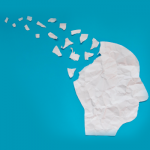Nonpharmacologic interventions that have shown success in treating pain in this population include support from psychologists, as well as caregivers, she concluded.
Depression Common in RA
At all ages, patients with rheumatic diseases often experience major mood disorders, such as depression, said Lesley Arnold, MD, professor of psychiatry and behavioral neuroscience at the University of Cincinnati School of Medicine, Cincinnati. Prevalence of depression in the general population is about 7%, but 17% of the RA population reports having a major depressive disorder, and 15–48% present with depressive symptoms, Dr. Arnold said.
Depression is a syndrome that may include various emotional and physical symptoms. “If a patient cries in your office, obviously you should screen for depression,” said Dr. Arnold. Patients who are depressed may present with a variety of symptoms. “Anhedonia, especially in men, who sometimes report more emptiness or a lack of feelings, is something to look for.”
Anxiety is intertwined with depression, said Dr. Arnold. “In pain patients, anxiety is actually more common than depression. ‘Can’t turn their minds off at night’ is a common complaint in pain patients.” They may focus on their pain as a symptom of depression, she added. Fatigue and sleep disturbances also are common symptoms of depression. Many women with depression experience increases in their sleep patterns and appetite, while other patients may feel jittery or restless, unable to sleep.
Even depressive symptoms that are subthreshold are important to treat, because they can worsen. “Depression can profoundly impact your patient’s prognosis,” Dr. Arnold said. Depression’s impact on RA patients includes increased pain, fatigue, lower quality of life, increased physical disability, increased healthcare costs, poorer diet, less physical activity and reduced compliance with medications.
A number of screening tools using electronic medical records software may help in diagnosing depression in these patients. These include the Hamilton Rating Scale for Depression, the Hospital Anxiety and Depression Scale, and the Beck Depression Inventory. Some tools are self-reporting questionnaires that patients can complete on laptops or tablet computers at the clinic.
Proper treatment of depression can prevent recurrence, which occurs in 50% of patients who have reported one lifetime episode of the syndrome, as well as improve such symptoms as pain and sleeplessness. Depression is chronic and recurring. “Most people will need to be on therapy for the rest of their lives,” said Dr. Arnold. Although some patients will be referred to a psychiatrist for pharmacologic treatment of their depression, “it might be useful to you, if you have not already done so, to become comfortable using some of these medications in your patients,” she added.

